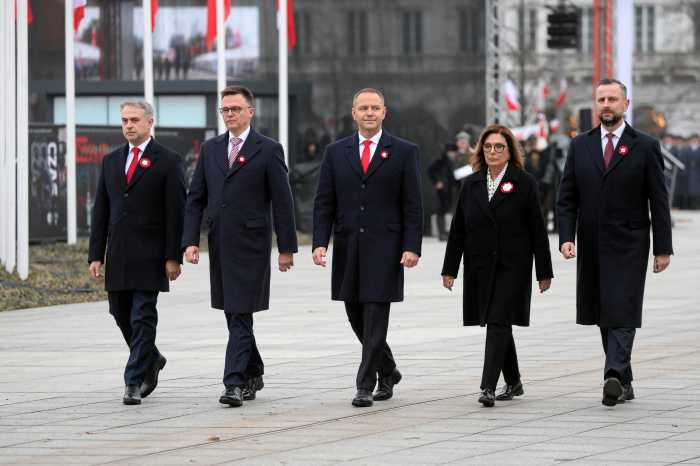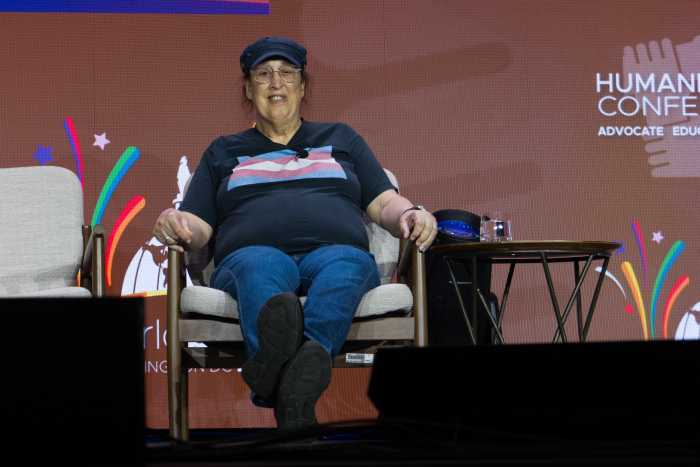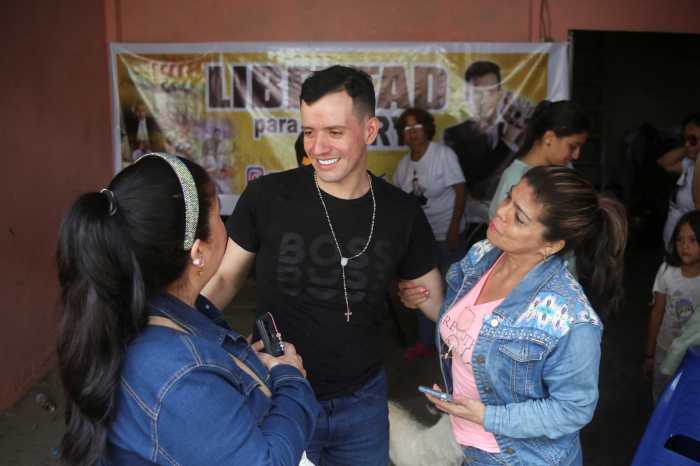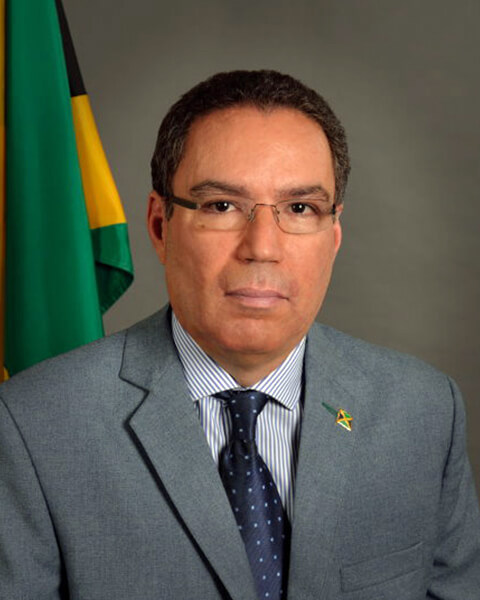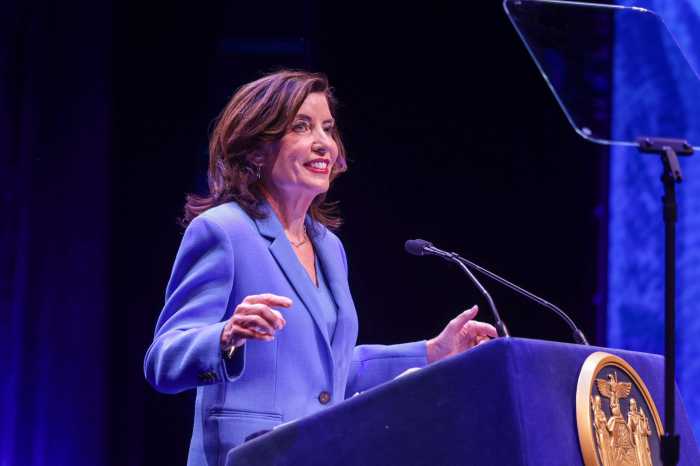The report on the hanging of two Iranian teenagers for being gay, the controversies surrounding the initial reports, and the way in which the story has evolved illustrate a number of problems that should concern sentient gay and lesbian people here in the U.S.
Gay people in this culture are not exempt from the self-centeredness of the society in which they live. As a result, our national gay institutions—like the Human Rights Campaign and the National Gay and Lesbian Task Force—as a general rule pay so little attention to events touching gay people outside our borders that they have little experience or background in evaluating, reporting on, or mobilizing around such issues.
And the commercial gay press, which devotes endless, ad-revenue-generating pages to gay tourism, rarely pauses to examine the political, social, and cultural contexts in which gay people in other countries live out their daily lives.
Nor does our gay press generally have a perspective that situates gay oppression within the broader context of the challenge to human rights, or engage with human rights issues that are not specifically gay.
This lack of sophistication in dealing with the problems of same-sexers in foreign cultures is particularly noticeable when dealing with a closed society like Iran. In the Iranian police state, where the religious authorities and their political police enforce strict controls on freedoms of thought and expression, it is difficult even for national and international news organizations with large budgets and experienced reporters at their disposal to always distinguish what is false from what is true.
Add to this paradigm the institutional and individual homophobia that characterizes such news organizations and many of their staffers, and the problems of covering gay news in particular are magnified.
In Iran censorship is an everyday occurrence. More than 10 newspapers have been shut down and journalists are constantly subject to arbitrary arrest.
The international group Reporters Without Borders has named Iran’s senior spiritual leader, Ayatollah Ali Khamenei—the “Guide of the Islamic Republic”—as one of the world’s foremost “Predators of Press Freedom.” All this explains why bloggers have become an important part of the democratic opposition to the clerical-fascist regime of the ayatollahs—and why the Iranian government has been engaged in a massive crackdown on bloggers since last fall. At least a half dozen online journalists and bloggers have been arrested, and both international Web sites in English and local web sites in Farsi have been blocked by a filtering system (ironically with SmartFilter, a system manufactured and marketed by a U.S. company, Secure Computing).
In Iran, blogs are particularly crucial in helping gay and lesbian people to come out and form a gay consciousness which does not generally exist nor dare speak it name in such a traditional, patriarchal culture (which has succeeded in erasing from collective memory the strong literary and poetic same-sex tradition that flourished in Islamic cultures in the 11th, 12th, and 13th centuries.) A large number of those blocked Iranian Web sites related to gay and lesbian and women’s issues, as well as AIDS, according to a survey released last month by OpenNet Initiative, a project sponsored by Harvard University, the University of Toronto and Cambridge University among others. Yet the U.S. gay press and our national gay institutions let these events pass in nearly total silence.
As I noted on my blog, DIRELAND, when I first transmitted the reports of the hanging of the two Iranian adolescents for criminal homosexuality, consensual gay sex in any form is punishable by death in the Islamic Republic of Iran. According to the Web site Age of Consent, which monitors such laws around the world, in Iran “homosexuality is illegal, those charged with love-making…Even kissing ‘with lust’ (Article 155) is forbidden. This bizarre law works to eliminate ancient Persian male-bonding customs, including common kissing and holding hands in public.”
But Iran is a signatory to and has ratified two international conventions—The Convention on the Rights of the Child and the International Covenant on Civil and Political Rights—both of which prohibit the imposition of the death penalty for crimes committed before the age of 18. Besides the death sentence (confirmed by Iran’s Supreme Court) carried out against the two teens hanged on July 19 in violation of Iran’s treaty commitments, Iran is thought to have executed at least four other juvenile offenders in 2004, and at least 30 juvenile offenders are on death row. Besides Iran, only China, the Democratic Republic of Congo, Pakistan and the United States are known to have put juvenile offenders to death in the past five years.
The U.S. executed nine juvenile offenders during this period; the other countries are each known to have put one juvenile offender to death. Thus, the U.S. has not only been the world’s leading executioner of minors, but has put to death twice as many as has Iran in this period. Where were the gay community’s voices raised against these U.S. executions, every bit as outrageous as those of the two Iranian teens?
As protests by bloggers and online journalists within Iran brought the hanging of the two teens to worldwide attention, the Iranian government justified the hangings on the grounds that the two boys had participated in the rape of a 13-year-old boy. Immediately, U.S. gay organizations—mortified at the thought they could be implicated in the defense of a pedophilic incident—backed away from their initial protests of the teens’ hangings.
I was initially skeptical about the rape charge, particularly because Iran is currently in delicate negotiations with Western European powers over its developing nuclear capacity—hardly the time to be caught in a violation of its international commitments under two treaties (i.e., the ones outlawing the execution of minors). When I asked Hadi Ghaemi, who runs the Iranian desk for Human Rights Watch, on what basis HRW was saying they were “90 percent sure” rape had taken place (as the director of HRW’s gay and lesbian program, Scott Long, told me) Ghaemi said his sole source was the newspaper Quds, a daily controlled by regime supporters, in the city of Mashad where the two teens were hanged. This newspaper carried statements alleged to be from the father of the 13-year-old who was supposedly raped, and from several of the passers-by who had interrupted the “gang rape” in a vacant lot, upon which, they were quoted as saying, they were threatened at knife point by a group that included the two hanged youths.
When I asked Ghaemi why the July 24 Associated Press dispatch on the hangings cited the executions as being only for “homosexual acts” without mentioning the rape, he said that the original charge against the boys was “sexual assault based on homosexual acts,” and that the first part of the charge had been somehow dropped in translation. Ghaemi said he didn’t believe that Quds had fabricated the quotes in the article about the rape, which had appeared the morning of the hangings (not after the protests). But he also said he had no independent confirmation from sources in Mashad of the accuracy of the rape charge.
So, did the “rape” occur? Until further independent confirmation is forthcoming, we can only surmise. Did the hanged kids claim “gay” identity? Most probably not—since the concept is virtually unknown among the uneducated lower classes in Iran. But that doesn’t excuse our national gay organizations’ cowardice in backing off their demands that the U.S. government specifically protest the hanging of the two youths for crimes committed when at least one, and possibly both of them were underage.
The moral of this story: American gays need to more fully engage themselves with what is happening to our brothers and sisters in other cultures, where oppression— both cultural and political is commonplace. And not just when there’s a crisis.
Doug Ireland is a veteran political journalist and a former columnist for the Village Voice and the Paris daily newspaper Liberation. He has written extensively on gay and AIDS issues.

